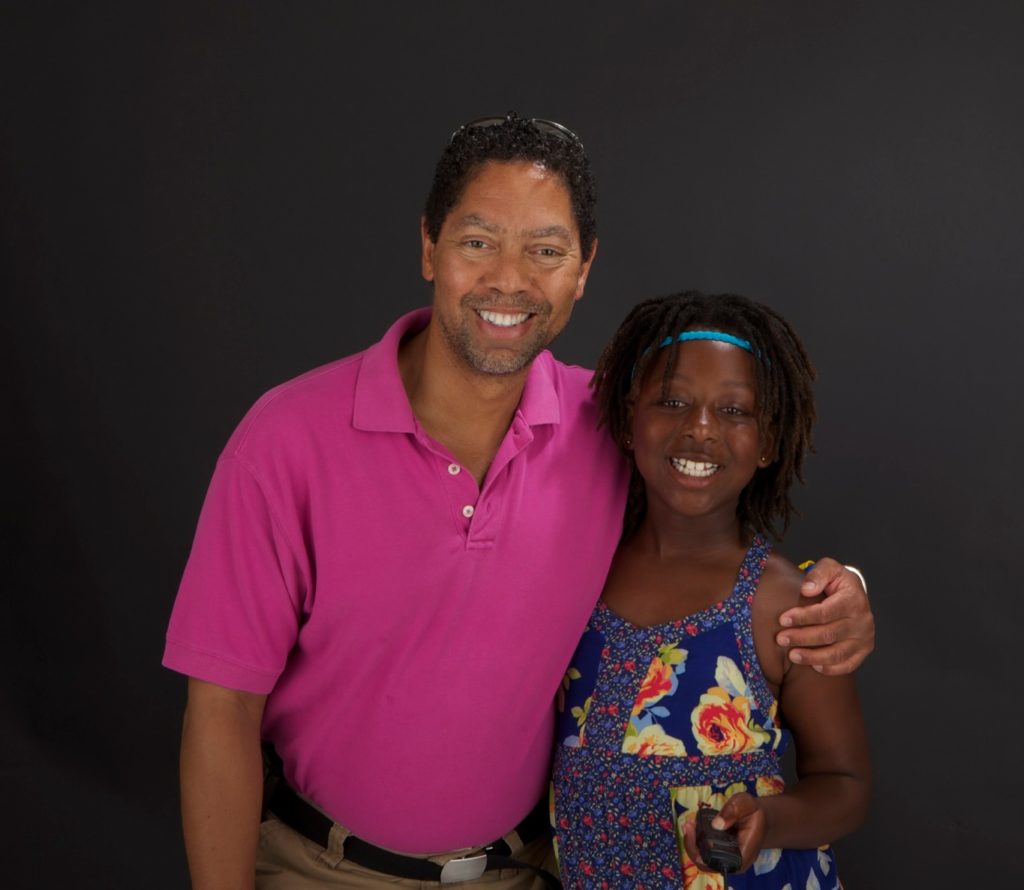Christopher Harris, M.D., is the type of person you would be incredibly grateful to meet, even though one would hope that you would never be forced to see him professionally. A pediatric pulmonologist, Harris is currently at Cedars-Sinai Medical Center, directing the Division of Pediatric Pulmonary Medicine. He is also Professor of Pediatrics at the University of California-Los Angeles. In his extensive medical career spanning decades, Harris is remarkably accomplished. A faculty member at some of the country’s most prestigious medical universities and board certified twice, he still finds time to serve in many civic organizations, most recently as the President of the Gay and Lesbian Medical Association Board.

Chris and his daughter
Despite his extensive work history and training, there is only one experience Harris cites as completing his training,
“The saying goes, you don’t complete your pediatric training until you have your own kids.”
Harris’ training was complete in 2002 when he adopted his daughter Maria. In the 15 years that have followed, Harris cites fatherhood as both his most significant accomplishment and joys.
But it wasn’t easy getting there. The process of adoption brought Harris through three different agencies, having faced discrimination at the first two agencies. Although he superseded all requirements- having five recommendation letters and taking additional parenting courses on top of extensive paperwork, Harris often found himself waiting with no word for months to years from agencies where he placed all his resources.
“I would be out and about and see people I was in parenting classes with. While I was still waiting, they would say ‘Oh yeah, we were placed with a child months ago.”
In recounting his story, Harris distinctly remembers another gay man who was in his parenting class facing the same situation.
One day, when he followed up with an adoption agency after not hearing back for months, an employee made their discriminatory practices crystal clear.
“Oh gee Dr. Harris,” he recounted, “we work with single women, but not single men.”
In the journey to adoption, Harris had attempted to work with several religiously affiliated agencies who received government funds and yet, would fully limit the selection of potential parents, based on personal beliefs. After the final blow, Harris was determined to work with an agency that had the best interest of the child at the center of their practice.
Like many Gay, Lesbian and Transgender parents, Harris has had to navigate institutional prejudice in forming his family. Even though same-sex couples or LGBTQ single parents are six times more likely to foster, and four times more likely to adopt, there is an aggressive attempt to limit the rights of these prospective parents, keeping many children in need away from potentially finding homes filled with love.
Most recently, Congressman Robert Aderholt of Alabama introduced an amendment that would allow discrimination against qualified prospective LGBTQ parents and youth. The House Appropriations Committee approved it, putting youth and families in danger of being kept away from forever homes across the country.
“How people approve or disapprove of potential parents should have nothing to do with sexual orientation or gender identity. But it has everything to do with whether or not a person has the capabilities, heart and love to be a parent,” Harris advised.
Better take the doctor’s advice.
